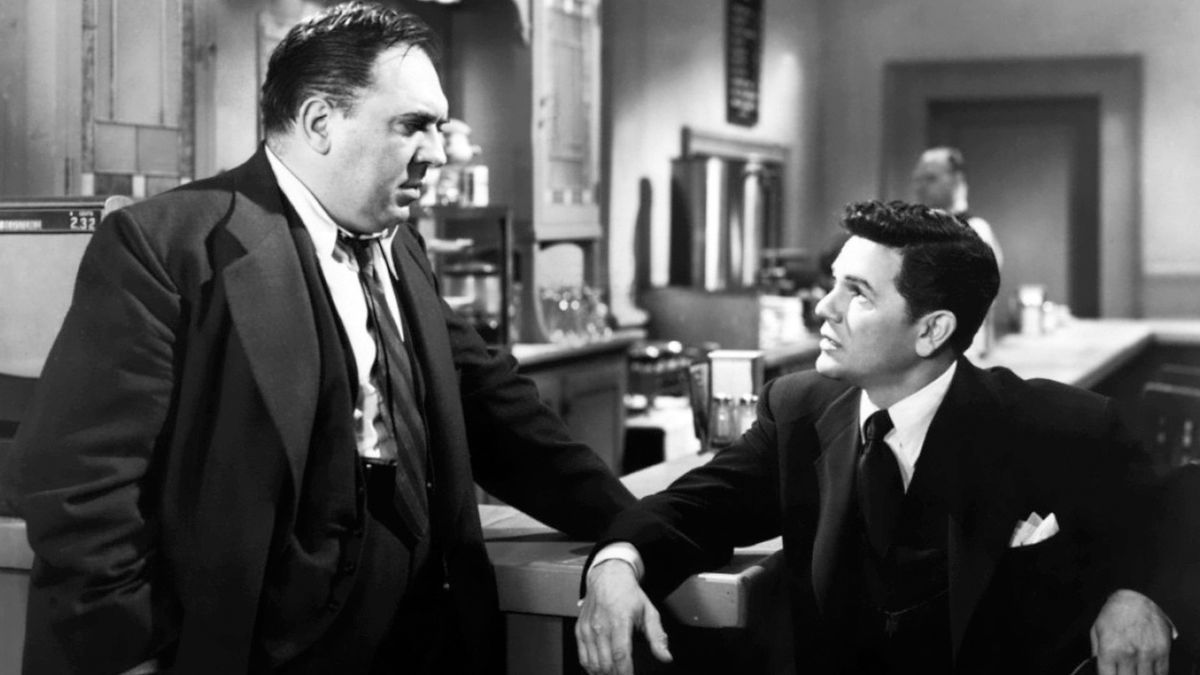Music for the Films

Source: Sight & Sound: August / September 1951 / Vol. 21 No. 1
Publisher: The British Film Institute
Copyright © 1951, by The British Film Institute. All rights reserved.
Letter to the Editor, Sight And Sound - Sir. - Several months ago you were kind enough to appreciate in a review of RIGHT CROSS the brief music I composed for that film. I wonder if you have any idea how gratifying it is to find that one’s work in a small film has not gone unnoticed? What pleased me most, however, was that you identified me as the composer of the score of FORCE OF EVIL. I am so accustomed (perhaps I should say “inured’’) to being introduced as the composer of LAURA that it was a real thrill to find someone who remembers FORCE OF EVIL and the music I wrote for it. This is my favourite score, and the picture was, to me, a fine film, misunderstood here and mishandled by those who released and were to have exploited it.
More recently, I was delighted to learn from Mr. Antony Hopkins’ even-tempered reply to Mr. Lawrence Morton’s equally affable article that the score of the Symphony of Psalms is published in England without parts for Violins and Violas, just as it is here. Mr. Hopkins cleverly cites this to prove that Stravinsky's destiny to live in Hollywood had not yet corrupted him in 1930, and that like all “real” composers he orchestrated this work himself. Mr. Hopkins was also thoughtful enough to provide us with a measuring stick by which even the most ignorant can determine who is and who is not a “good” composer. “What”, says this formula, “has the composer written for the concert hall?”
Does Mr. Hopkins mean to imply that without the existence of Portsmouth Point and the Viola Concerto as references, William Walton’s scores for HENRY V and HAMLET have no stature of their own? Should one's awareness of some anaemic little woodwind trio by Hanns Eisler colour for better or for worse our appreciation of his music for WHITE FLOODS or WOMAN ON THE BEACH? The score of THE BLOOD OF A POET is a good one, and that of CAESAR AND CLEOPATRA is bad. Both are by Georges Auric, and it is my suspicion that his having composed Les Pelicans has nothing to do with the case. Far be it from me to argue for the opposition, but isn't Mr. Hopkins giving us much the best of it (and placing his right to call himself a critic in jeopardy) when he all but confesses that he cannot hear from the scores of the HEIRESS and OF MICE AND MEN that they are the work of a fine composer without having to refer for assurance to that composer's concert pieces? If this does not appear addled to Mr. Hopkins, who am I to awaken him from his dream?
But all this is as nothing compared to the distress occasioned by the news lately smuggled into Hollywood in a copy of Forsyth’s “Orchestration” by a member of the Bass-Clarinet-to-the-Fore Underground. This vile and obviously false rumour would have it that English composers do not copy the orchestra parts of their own compositions. You can imagine what a reaction this dreadful canard elicited in our country, where Charles T. Griffes is considered a better composer than Beethoven or Irving Berlin because he died after exhausting himself copying the parts of one of his works. (The Un-American Affairs Committee has recently had to scotch a Communist-inspired rumour that this was because he could not afford a copyist.)
Of course, as any true composer knows, privation is good for the artistic soul. Our conservatory juniors are taught that though malnutrition may have helped to kill Schubert, it did not harm his music. Charities here are specifically aimed to avoid practicalities such as feeding artists, in order to preserve the integrity of the unsated spirit.
The problem remains one of convincing American purists that their British colleagues would never resort to such a cheap-jack evasion of the responsibility of the true composer. Some earnest of good faith, such as a complete set of the parts of the Vaughan Williams’ Symphonies in the composer’s own hand, would be just the thing. If such a collection is not at the moment available, please have Vaughan Williams drop whatever he is doing and get to work upon it immediately.
And now I must close this letter. Word has just arrived via Wells-Fargo Express rider that a Cherokee raiding party, inflamed by the news that Gabriel Fauré employed orchestrators, has desecrated that composer’s statue in the Stone Mountain Monument. Our Garrison leaves at dawn.
Morituri te Salutamus!
Editor’s note: Raksin’s letter came in response to a critique by the British composer Antony Hopkins (1921-2014) who had attacked an article by the American critic Lawrence Morton (1904-1987) reprinted in the British Film Institute journal Sight and Sound under the heading "Orchestration Run Riot”. Raksin’s tounge in cheek closing paragraph drew a line under a lengthy series of exchanges involving Morton, Hopkins and the Austrian-born British musician and writer Hans Keller (1919-1985) which followed in the wake of the Film Music Congress at Florence held during May 1950. Details of this battle of words may be found in an article by N. William Snedden “Hollywood Film Music Orchestration 1930–1970”. In October 1947 the British Film Institute published a booklet "The Need for Competent Film Music Criticism" in which Keller had written that film music is “capable of becoming a weapon of musical mass destruction”. His writings on film music are peppered with aphorisms, e.g. “Art arises where the arbitrary and the predictable are superseded by unpredictable inevitability.” Hopkins’ film scores include THE PICKWICK PAPERS (1952) and BILLY BUDD (1962).



